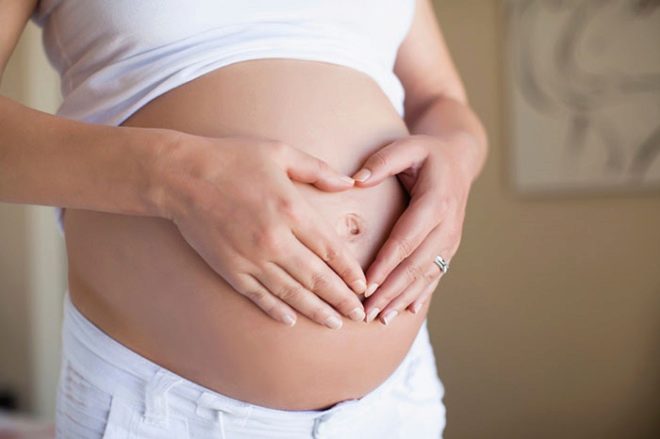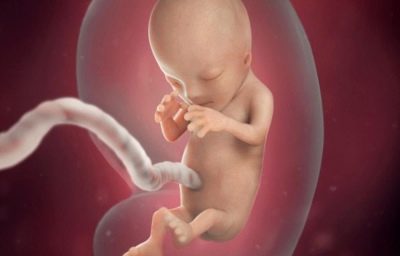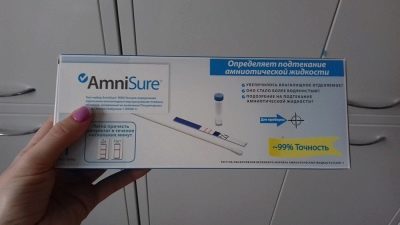Is the leakage of amniotic fluid in the second trimester of pregnancy dangerous?
The leakage of amniotic fluid at any stage of pregnancy is very dangerous for the baby. It indicates that the tightness of the fetal membranes is broken, and the baby’s life is threatened. In the second trimester, such a complication occurs infrequently, but the symptoms of his need to know in time to ask for help.
About aquatic environment
Amniotic fluid is a biologically active fluid that is inside the membranes. In her baby is safe, it is his natural habitat. The well-being of pregnancy depends on the amount of water. In the normal state of affairs, the waters of the waters pour out immediately and completely in the genera. Sometimes - directly in front of them., and sometimes you have to do an amniotomy - to pierce a bubble in childbirth. And all of these options are normal, if the gestation period exceeds 37 weeks, and the fetus is full-term.
If the partial outpouring of waters occurs in the second trimester, this has nothing to do with the norms. It is not difficult to guess what this condition is dangerous for if you know what functions the waters perform. They nourish the fetus because they contain valuable substances for the baby. Their pussy regularly swallows.
Fetal waters help maintain the required temperature inside the uterus - they have a stable temperature of about 37.0 degrees. Water protects the baby and the umbilical cord from damage - this is an excellent shock absorber and pressure from the outside.
Water protects your baby from infection. There are immunoglobulins in their composition, and the fetal bladder is tight. They give the kid the opportunity to move more easily, and also protect him from loud noises from the outside, muffling them.
Water leakage is dangerous violation of all these functions and in the second trimester can lead to infection of the fetus, its intrauterine death, to the onset of late miscarriage (up to 22 weeks) or premature birth (after 22 weeks of gestation).
Causes and Symptoms
The reasons for which the waters begin to leak, can be very diverse. The main ones include:
- infectious diseases of the female genitourinary system;
- ICN (violation of the locking functions of the cervix), as a result of its early softening, enzymes are released that dissolve the outer layer of the fetal membrane;
- pathological presentation at the clinical narrowness of the pelvis of the expectant mother;
- inflammation of the cervix (cervicitis);
- maternal habits, chronic diseases;
- multiple pregnancy.
It is quite difficult to recognize whether water is leaking at home. If the liquid is not all poured out immediately, then alert should watery discharge from the vaginawhich are intensified if a woman after a horizontal position takes a vertical cough. In this case, the woman does not feel pain. No characteristic clinical symptoms, except for an increase in discharge and their liquefaction, the pathology does not have.
Pharmacies today sell amniotesta, which allows a woman at home to test for amniotic fluid in secretions. But their accuracy, unfortunately, raises many questions. Therefore, it is best to contact a consultation or a maternity hospital in case of suspicious secretions in the second trimester to conduct a more accurate study.
What to do?
Women who complain of a possible leakage of water, it is not recommended to conduct a vaginal examination. If the leakage is confirmed, the study of hands and instruments will increase the likelihood of intrauterine infection of the fetusBecause the membranes are no longer intact and can prevent infection inside the bladder. If a woman has contractions, that is, preterm labor has started, a vaginal gynecological examination is performed. But in the absence of signs of childbirth it is strictly prohibited clinical protocols of the Ministry of Health of Russia.
A woman is given a clean pad, and for an hour she is under surveillance. Then the doctor visually assesses the cleanliness of the gasket. The method is visual, but rather subjective. Therefore, it is customary not only to consider gaskets, but also to conduct diagnostic laboratory tests.
If the fetal waters have gone completely, they choose a waiting tactic - usually in the second trimester, with a fetus weight from 500 to 1000 grams, childbirth will start in 26% of cases during the day. If they do not start, their stimulation is possible. A lot depends on the exact time - if the water is withdrawn for up to 22 weeks, it is recommended to terminate the pregnancy because of possible serious complications for the woman in case of almost inevitable intrauterine death of the fetus. After 22 weeks of pregnancy, the child has a chance to survive - about 18%. And doctors will try to do everything to help the baby and his mother.
If the water is leaking, but not fully departed, doctors will try to prolong the pregnancy.. A woman is transferred to strict bed rest, even the toilet is prohibited. She is given antibiotics to prevent infection of the membranes and fetus, and tocolytics are administered. Every 3 hours change sterile pads. The future mother will be kept in a separate sterile ward.
Sometimes the ruptures of the membranes stick together, and the leakage stops.










